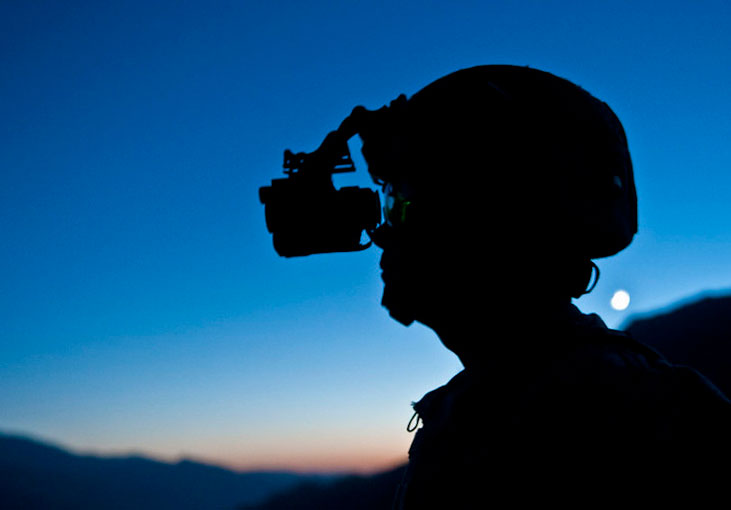Service Members often endure long waking hours, shift work, or both. Staying awake longer than 24 hours or during periods when your internal clock prefers to sleep can impact physical and cognitive performance. But you can learn evidence-based tips to develop fatigue management strategies to mitigate the impact of sleep deprivation on your military performance. Use this infographic to learn sleep strategies for before, during, and after shift work and sustained operations.
Learning more about other topics related to sleep and fatigue management can help you put all the pieces together before, during, and after shift work and sustained operations. Check out the following HPRC’s and OPSS’ resources for additional information:
- Sleep vacation: One way to transform your sleep for military wellness and performance optimization
- 20 Holistic sleep-optimization tips for better performance, mental health, and resilience
- Napping for the military: When and how long you should nap
- Strategic napping for when you get no sleep
- Caffeine and performance

During regular daytime operations:
- Learn how much sleep you need to sustain your optimal health and performance.
- Develop good sleep habits.
- Maintain a consistent sleep schedule to help you get 7-9 hours of sleep.
- Learn the different ways you can use strategic napping to optimize your performance.
Up to 2 weeks prior:
- Sleep longer or nap to bank sleep hours to help offset the impacts of sleep deprivation.
- The more hours you bank, the better.
During shift work and sustained operations:
- Nap! Try safety-first naps or "cappuccinos" (coffee naps) to reset your alertness.
- Consume up to 200 mg of caffeine every 4 hours as needed.
- Expose yourself to sunlight.
- Perform a short bout of high-intensity exercise.
After and between shifts or sustained operations:
- Time your last dose of caffeine so you can finish your shift (or get home) safely but still get to sleep quickly.
- Sleep as soon as possible and for as long as you can after your shift.
- Optimize your sleep environment—temperature, light, and noise—as best you can for good sleep.
- Fall asleep more easily with mindfulness, deep breathing, or progressive muscle techniques.
- Nap as needed.
Back on daytime operations:
- Maintain good sleep-hygiene habits.
- Continue to try and get the required 7-9 hours of sleep.
- View sunlight as soon as you're up in the morning to help reset your internal clock to a consistent sleep-wake schedule.
- Pay off sleep debt through strategic napping.
Published on: April 14, 2023
References
Beckner, M. E., Lieberman, H. R., Hatch-McChesney, A., Allen, J. T., Niro, P. J., Thompson, L. A., . . . Pasiakos, S. M. (2023). Effects of energy balance on cognitive performance, risk-taking, ambulatory vigilance and mood during simulated military sustained operations (SUSOPS). Physiology & Behavior, 258. doi:10.1016/j.physbeh.2022.114010
Capaldi, V. F., Balkin, T. J., & Mysliwiec, V. (2019). Optimizing sleep in the military. Chest, 155(1), 215–226. doi:10.1016/j.chest.2018.08.1061
Ebben, M. R. (2020). Nonpharmacologic management of excessive daytime sleepiness. Sleep Medicine Clinics, 15(2), 195–203. doi:10.1016/j.jsmc.2020.02.018
Good, C. H., Brager, A. J., Capaldi, V. F., & Mysliwiec, V. (2019). Sleep in the United States Military. Neuropsychopharmacology, 45(1), 176–191. doi:10.1038/s41386-019-0431-7
Jameson, J. T., Markwald, R. R., Kubala, A. G., Roma, P. G., Biggs, A. T., Lai, K., & Russell, D. W. (2022). Sleep deficiency, operational fatigue and the interplay of compromising factors: Analysis to aid in fatigue management. Journal of Sleep Research. doi:10.1111/jsr.13788
LaGoy, A. D., Conkright, W. R., Proessl, F., Sinnott, A. M., Beckner, M. E., Jabloner, L., . . . Ferrarelli, F. (2022). Less daytime sleepiness and slow wave activity during sleep predict better physical readiness in military personnel. Sleep Health. doi:10.1016/j.sleh.2022.10.013
